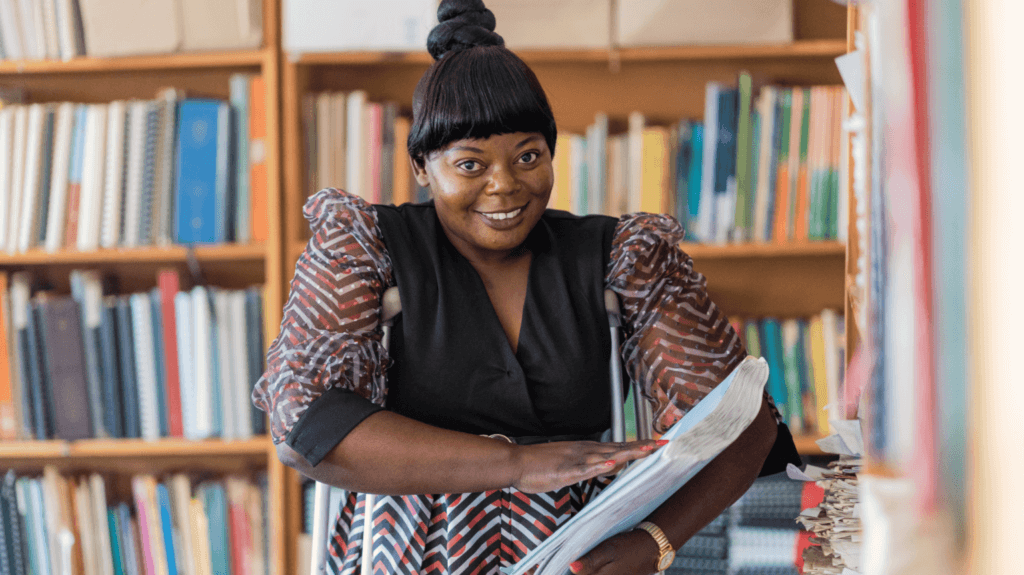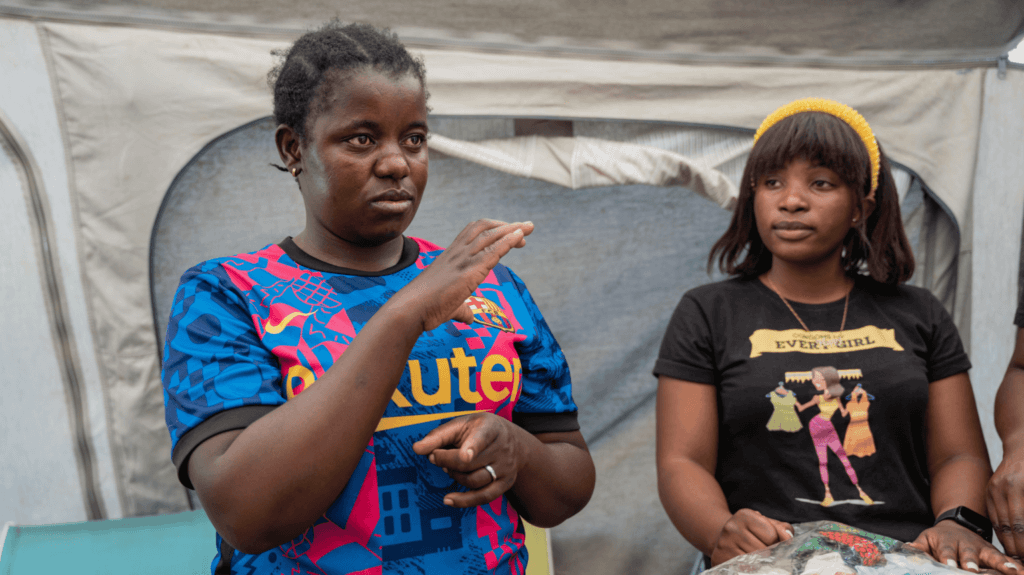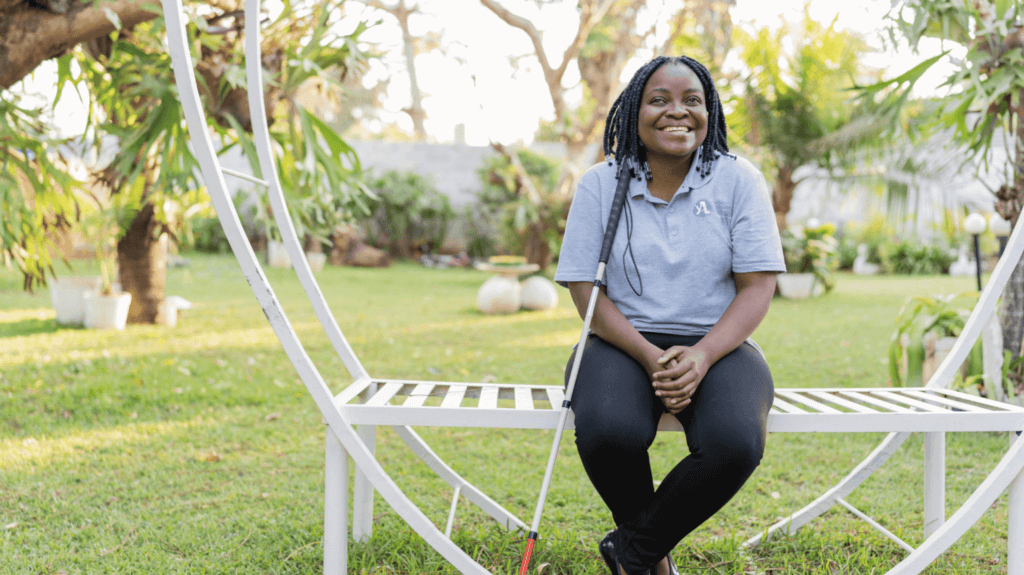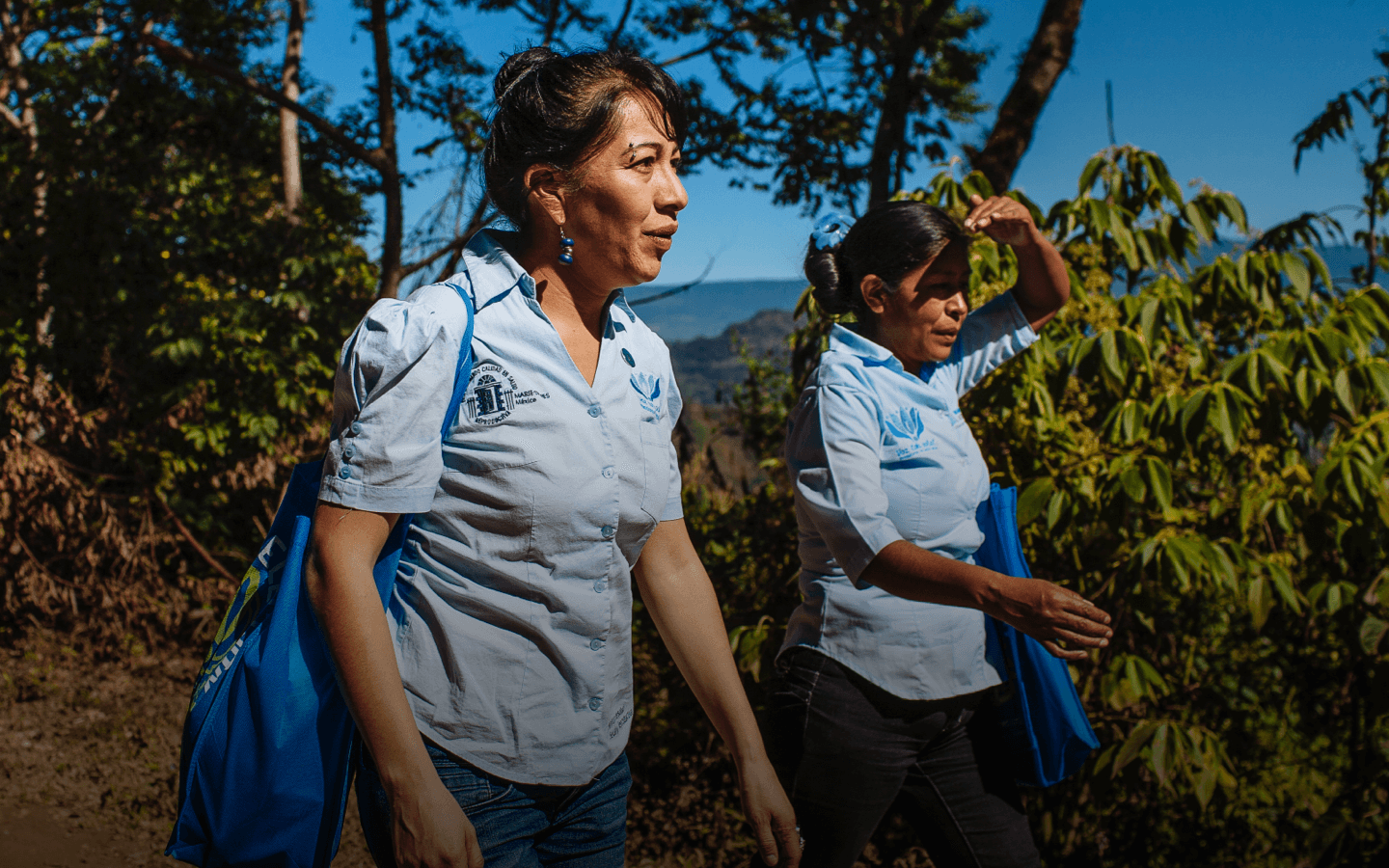Three women with disabilities share their stories
People with disabilities need sexual and reproductive healthcare just like anyone else. But unfortunately, healthcare providers often ignore their needs. Poverty, stigma, physical barriers (like stairs to get into a clinic), and exclusion from decision-making all play a role.
Through the Youth for Health project, MSI and our partners are working to change that. We’re working closely with organizations of people with disabilities to make information and services more inclusive.
We spoke to three women in Lusaka, Zambia about the challenges they face when accessing healthcare. They told us about the barriers they encounter. And, they gave us ideas that would make sexual and reproductive healthcare truly accessible to them, so they can choose their own futures.

Jane Mulenga, coordinator for the Zambia Agency for Persons with Disabilities (ZAPD), told us about the mistreatment people with disabilities sometimes encounter:
“Some healthcare providers, for example at public sector facilities, show pity when they see a person with a disability who is pregnant or trying to access sexual health services. When a pregnant woman with crutches goes for a routine check-up, they’ll act surprised she’s pregnant at all. That will put the pregnant woman off. You can imagine going to a facility to get help and then someone asks, “How are you going to manage?” Some will even shout to their fellow nurses to come and look at you. They’ll ask very insensitive questions like, “Even you? Who gave you that pregnancy? How can they impregnate a person with a disability?” They assume that people with disabilities are not sexually active and that we aren’t supposed to have children.
“Training healthcare providers to be inclusive of people with disabilities and their sexual and reproductive health needs should be mandatory. It’s easy to integrate into existing training curricula. If we do that, then going forward, we will see some positive change.”

Beauty Soko (39), who lives with a hearing impairment, shared her experience accessing healthcare with an interpreter:
“It’s not my first time interacting with MSI Zambia — I got the contraceptive injection three months ago. I know that it prevents pregnancy and I don’t want to have more children, as I already have four. The information and services given to me as a person with a disability were very good. MSI Zambia had an interpreter who made communication very easy for me. The service providers treated me well and they were very friendly to me.
“Unfortunately, this is not the same treatment people with disabilities often receive when accessing health services in public health facilities. Most service providers do not know sign language. They use gestures which are not very clear. And since they can’t sign, they depend on writing on paper, which can be very hard to understand. We are also human; we have a right to get information. Sign language is a language. The healthcare sector has a responsibility to make sign language available to ease communication. I will be very happy if this happens.
“I am very excited to hear that MSI’s Youth for Health project has disability inclusion built in. My advice would be to include sign language interpreters. That way, people like me can access, learn and understand reproductive health services.”

Youth advocate Nsofwa Sampa (31) runs Positive Movement Zambia, an organization which promotes an inclusive society for all. She shared her thoughts on disability inclusion:
“To me, inclusion means not leaving anyone behind based on their disability, race, or however they might appear to you. When I could see, maybe I overlooked this because it was easy for me to read and get information and opportunities. But when I lost my sight, people stopped inviting me for opportunities and meetings due to my disability.
“When I was a teenager, I also realized that there were limited conversations around sexual and reproductive health. Especially for young people with disabilities. In Zambia, most people start having sex when they are in their teenage years. They often don’t have adequate information on how to make informed choices, like how to access contraception. The situation is even worse for young people with disabilities as they face so many barriers and challenges. It’s unusual to see adolescents with disabilities, as most parents prefer to hide them. They’re usually kept away from discussions about sex and reproductive health. Parents sometimes fail to recognize that they want to become sexually active, so no one is there to talk and guide them.
“To promote sexual and reproductive health and rights among people with disabilities, facilities and information must be inclusive and accessible. We should integrate awareness-raising and sensitivity campaigns on the needs of persons with disabilities. Global health organizations and governments should focus on meaningfully engaging people with disabilities when designing and implementing different policies and projects. We should also be given more opportunities as peer educators and role models in our communities to motivate our peers to get more involved. We like to say, ‘nothing about us, without us’.”
MSI’s goal is to ensure that everyone who wants it has access to contraception. That includes people with disabilities, so we’ll keep asking questions and building new systems to reach our goals.






